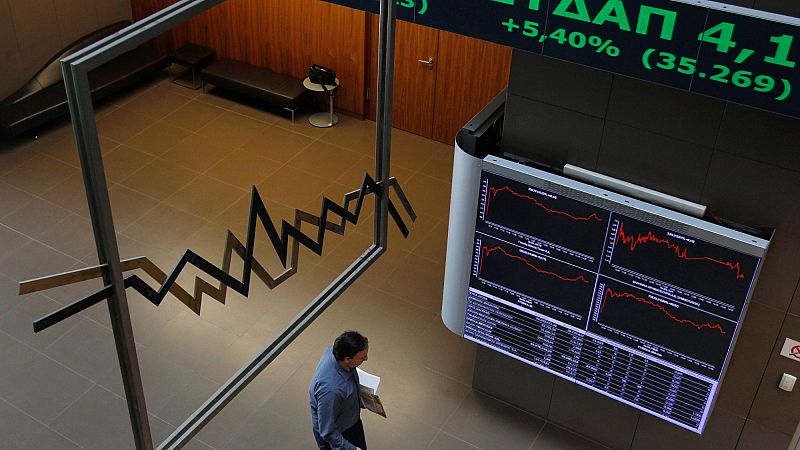
Greek Minister of National Economy and Finance, Kyriakos Pierrakakis, described the acquisition of the Athens Stock Exchange by the European stock market group Euronext as “one of the largest foreign investments in recent years".
"For the Greek economy as a whole, this is a decisive step forward," Pierrakakis said from the floor of the Parliament.
The announcement of the all-share deal came on Thursday, with the offer worth €412.8 million. The deal will exchange 20 Athens Exchange ordinary shares, valued at €7.14 each, for one new Euronext share, worth €142.70 based on a 30 July closing price.
"[This investment] strengthens our credibility and upgrades the country's position on the European and international economic map," continued Pierrakakis.
"We will examine the details of the agreement and follow the progress of its implementation. Overall, this is a highly positive development, and undoubtedly a major opportunity for the country as a whole."
And the acquisition of the Athens Stock Exchange was not only welcomed with satisfaction by Greece’s Minister of Finance.
Euronext CEO Stéphane Boujnah commented that "Euronext aims to expand its geographical footprint in Greece and to create a financial centre of Southeast Europe through the Athens Stock Exchange".
Boujnah added: "Greece has experienced strong economic growth in recent years, supported by increasing investment, the cultivation of international confidence and strong economic indicators. This is the right time, the proper moment to invest in Greece."
What it means for Greek businesses
The integration of the Greek stock exchange into Euronext's European family opens a new gateway to financing for Greek companies, at a critical time when international competition is increasing and global trade is being redefined.
Euronext is the largest liquidity pool in Europe, managing around 25% of total cash equity trading activity. It operates capital markets in major financial centres such as Amsterdam, Brussels, Dublin, Lisbon, Milan, Oslo and Paris.
It brings the following to Greece:
Access to a wider investment base
Membership of a pan-European group offers Greek businesses direct exposure to a much larger network of international investors, both institutional and private. This translates into increased liquidity for their shares and greater chances of success in future capital raises or bond issuances.
Know-how and digital tools
Euronext has well-developed digital platforms, trading tools and compliance infrastructure that will support the technological modernisation of the Greek stock exchange. This will help more firms and investors to participate in the ecosystem.
Enhancing credibility and prestige
Participation in a network with a strong European presence could act as a "seal of credibility" for listed Greek companies, making them more attractive to foreign investors.
Easier access for SMEs
Euronext's focus on small and medium-sized enterprises (SMEs), through initiatives such as the 'Euronext Growth' programme, could lead to the development of simpler and less expensive listing procedures for Greek SMEs.
Interconnection with other capital ecosystems
Through Euronext, Greek companies will gain access to alternative financing tools such as green bonds, ESG ratings, dividend reinvestment programmes.
What it means for the Greek economy
The acquisition of the Greek stock exchange comes at an important juncture for the Greek economy, which continues to record significant GDP growth (2.3% in 2024), yet faces serious challenges.
The main challenges include the completion of the Resilience and Recovery Fund, the looming recession threatening the European economy, and the need to change the country's production model, with less reliance on services such as tourism.
Greek businesses need sources of funding in order to develop beyond the Greek market, which is small and showing signs of fatigue in terms of domestic consumption.
Furthermore, despite the impressive increase in foreign direct investment over the last five years, the country still suffers from a large investment gap, hindering the modernisation of the Greek economy.







